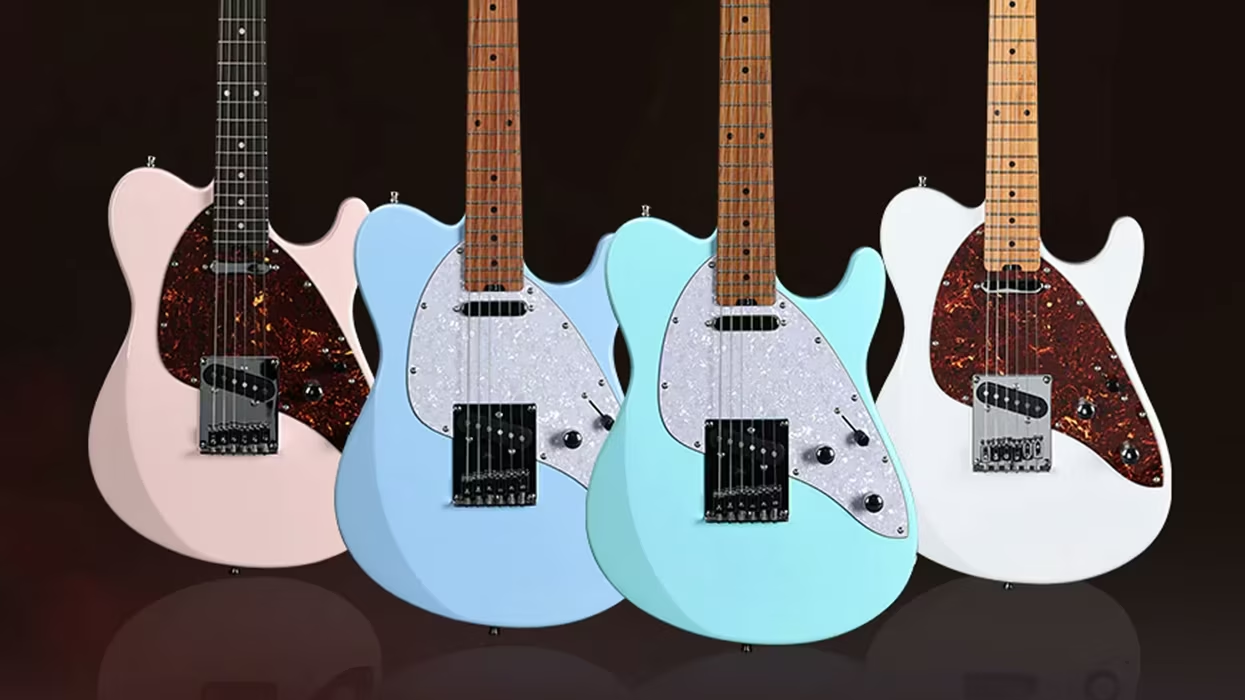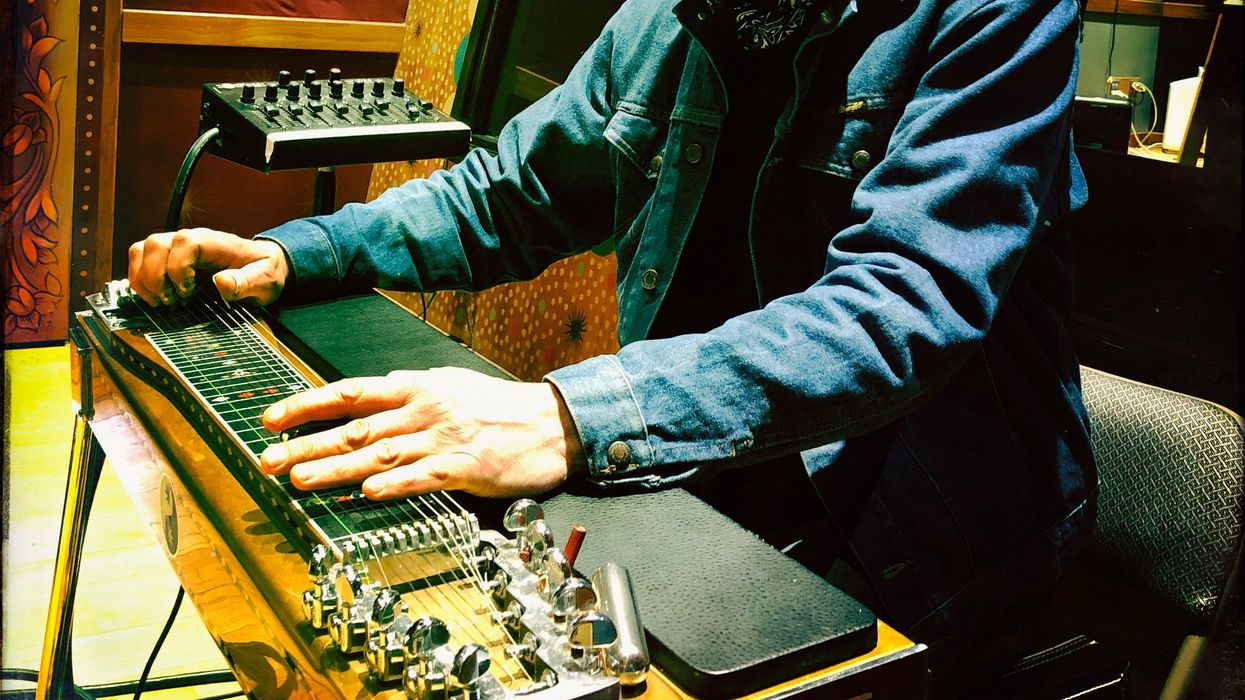
If you spend any amount of time on a computer, mobile phone, or tablet thingy these days, chances are you’re inundated with links to videos of someone doing something amazing or face-slappingly unexpected. As awesome as it can be to waste time on these things, in this ol’ bastard’s opinion there are also downsides.
Don’t get me wrong—I’m not saying I don’t dig a lot of the crap digital circuits enable us to do. But sometimes it’s worth stopping to think a little deeper about how they affect us. To me, one of the biggest downsides of technology’s instant gratification is that it exponentially increases our already unhealthy tendencies to see the “best” of what’s out there in the world—whether it’s music, sports, or whatever—and then immediately measure our own worth relative to it.
For instance, how many millions of people have seen a YouTube video of someone who’s freakishly good at something—like a pre-teen shredding “Eruption,” sinking 30 three-pointers in a row, or dancing better than Justin Timberlake—and then immediately thought, “There’s no way I’m ever going to be that good, so why even try?”
This video of a 14-year-old girl playing "Eruption" went viral in May, causing widespread self-hatred
amongst older guitar players.
Maybe those with fewer years on the planet and less context to generalize from are more prone to fatalist reactions like that, but I bet it still happens plenty with those of us who’ve been around for a few decades, too. I’m not saying we’re all gullible, powerless, self-loathing idiots—I think most of us, young or old, get that viral videos are usually outside the norm.
But I also think it can be easy to maybe subconsciously let the daily deluge of sensationalized content streaming in from all over the planet permanently warp our perception of life and of ourselves—our conception of who we are, what we may become, and why our quirks shouldn’t necessarily be ironed out. Even when we put things in proper context and don’t let someone else’s apparent badassness deter us, too many of us still see it as an impossibly high resetting of the bar for what’s satisfactory or laudable in a given pursuit. Because let’s face it, everything is being done faster, more precisely, and younger these days (we’ll leave the soullessness of much of it for another discussion, though). In a word, this is all totally skewed—it’s a bogus lens on life.
Now, before you accuse me of whining about the growing pains of cultural evolution like a dinosaur ignorant that the choking smoke and increasing temperatures aren’t from a meager forest fire but are impending desolation from YouTube’s Comet, let me remind you that when it comes to guitar and music, we’re talking about Art. Yeah, that’s a capital “A” there, my friend—and you best hearken, for it be Ye Olde English signifier of something special, hallowed, sacred, holy, etc. In other words—don’t fuck with it!
Though some people seem perpetually hell-bent on making anything and everything competitive, the cynic in me believes that’s usually somehow tied to monetary gain rather than love and concern for the arts and inner enlightenment. I mean, is there a subject that a TV exec, film studio, or click-hungry social-media entity hasn’t tried to cravenly twist into a cash cow?
Obviously the web, mobile devices, and social-media networks didn’t create humanity’s greed, insecurities, or copycat tendencies. But I contend that, in a lot of ways, they act as a giant magnifying glass, amplifying the heat we already put on ourselves. At their core, these tendencies are actually a good thing. They’re engraved on our DNA, a Darwinian key to our survival. They’re integral to accomplishing things and adjusting and adapting to everything from how to act at a funeral to what sort of line to play over a funky vamp. But when fanned too much, these innate tendencies rage out of control and cause us to take something that should be inspiring and turn it into something either contrived or crippling.
So if you really want to play beyond compare—in the best, truest sense, in the way that will be infinitely more meaningful to you as an artist and to us, your fellow beings—then the answer is simple: Stop comparing yourself to others. Stop wondering whether your tone is as “good” as Bonamassa’s or Eddie’s or Joe Pass’ or whoever’s. Stop worrying about whether your licks are fast enough to impress or humble other players in the crowd. Stop caring about whether your pedalboard or amp or headstock logo pass muster with snobs in the room. Stop trying to make someone else’s creations yours—make your own mark, dammit!
Plotting your playing around what someone else does or thinks is as fruitless, unfulfilling, and silly as deciding to wear your hair, clothes, and miscellaneous personal accoutrements the way someone else does. Just think what people would say if you went around wearing leather pants, sleeveless shirts, a nose ring, and a long, curly mop of hair with a conch-bedecked top hat. Chances are, your physique—your height, weight, body and head shape, etc.—is better suited to something you discover on your own than trying to conform to someone else’s style.
So learn to freaking celebrate the fact that your freckles, wrinkles, nose, ears, and that weird cowlick you’ve got going on the back of your head are a combo that no one else has got. Same goes for your guitar playing. Learn to combat the downsides of the daily digital deluge and our built-in, self-preserving insecurities by taking inspiration from exceptional feats.
Just keep reminding yourself that players who’ve gone down in history took what came before and made it their own, while slavish copycats have always been forgotten.
Shawn Hammond
shawn@premierguitar.com






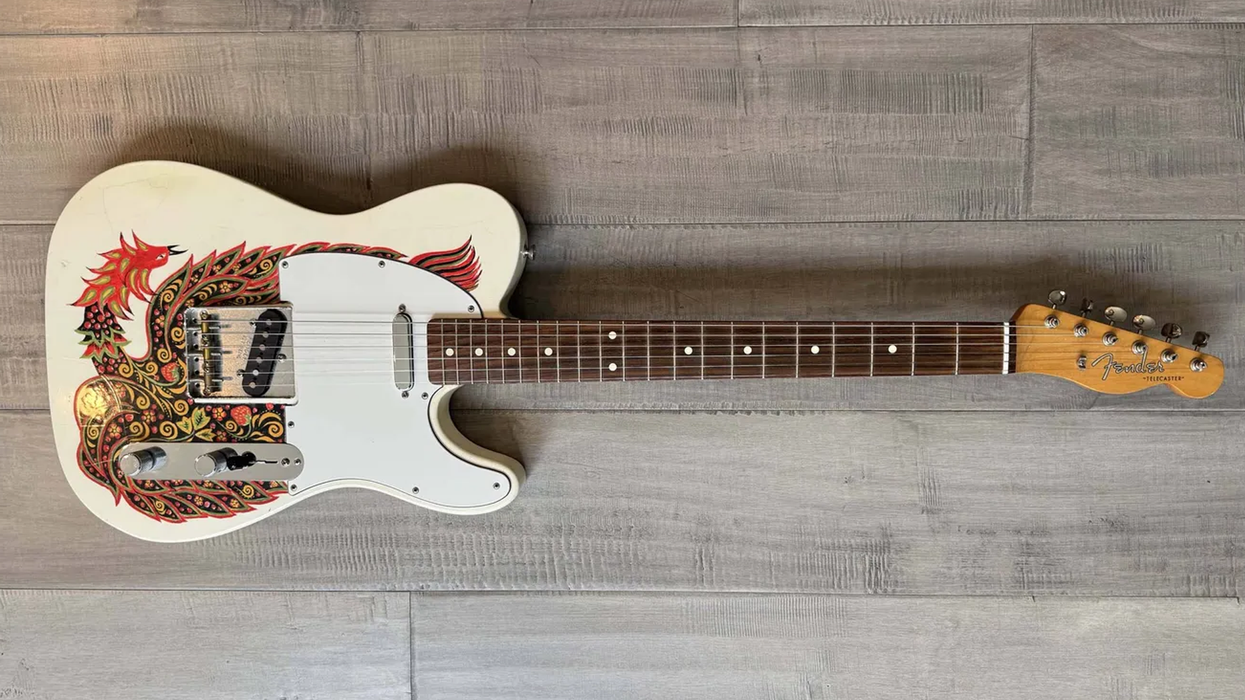

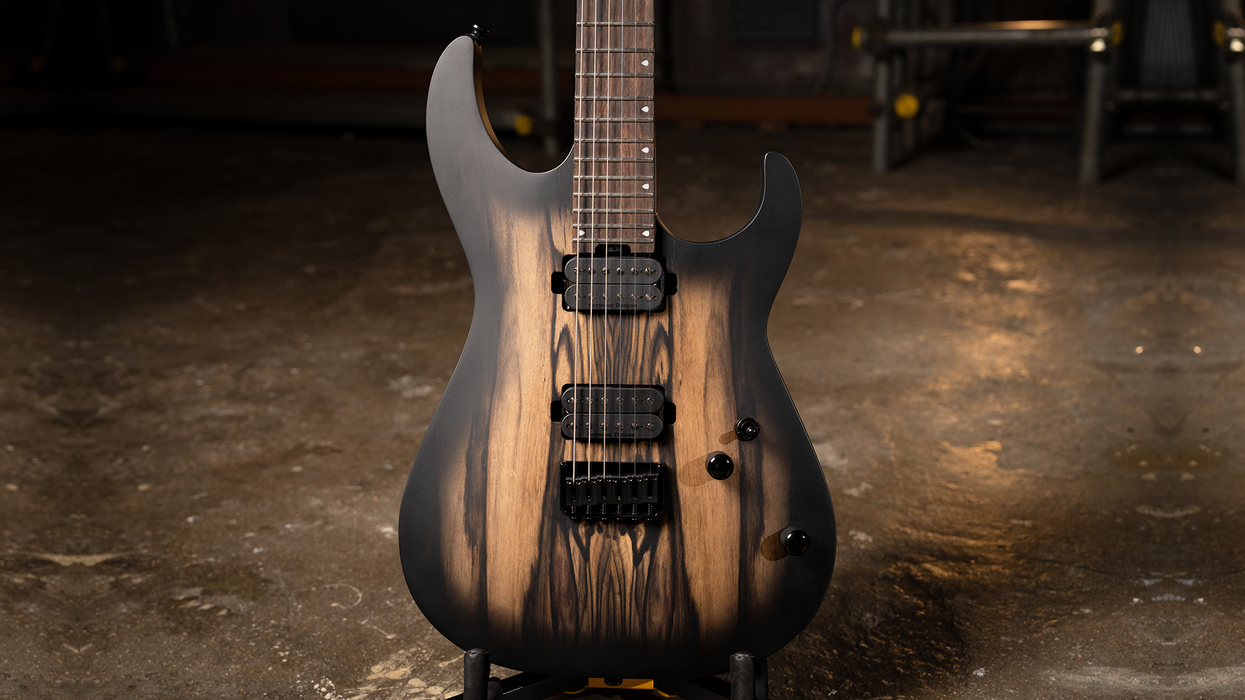

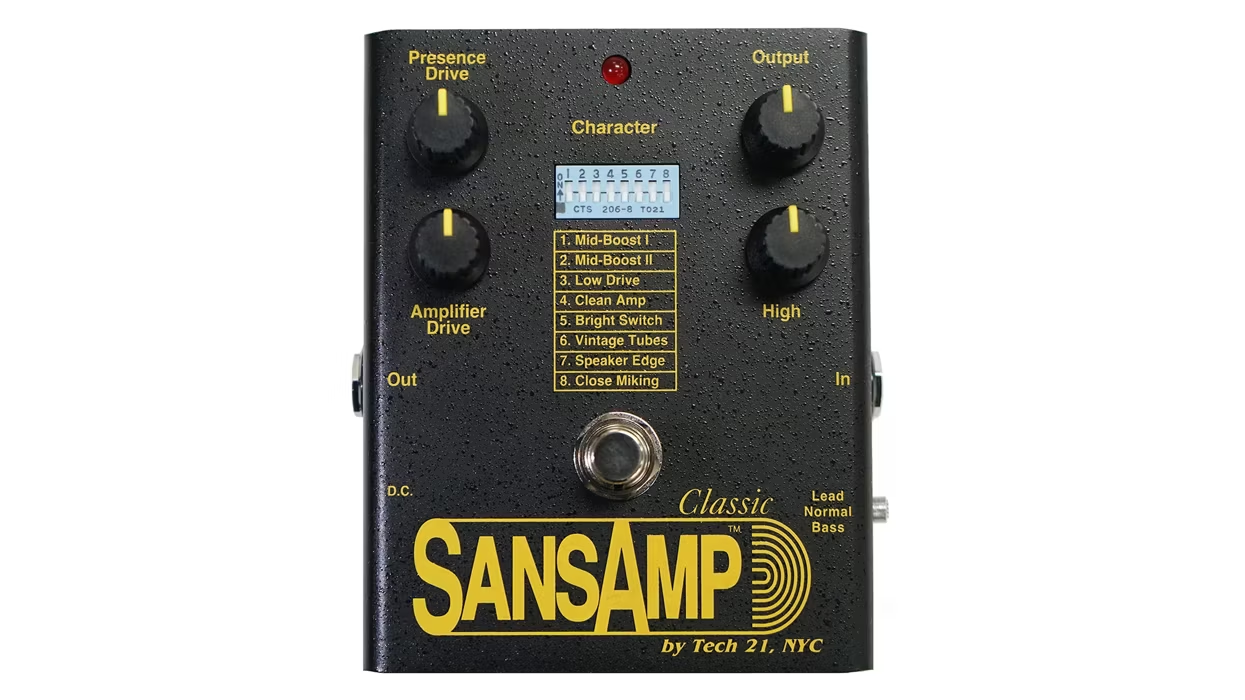
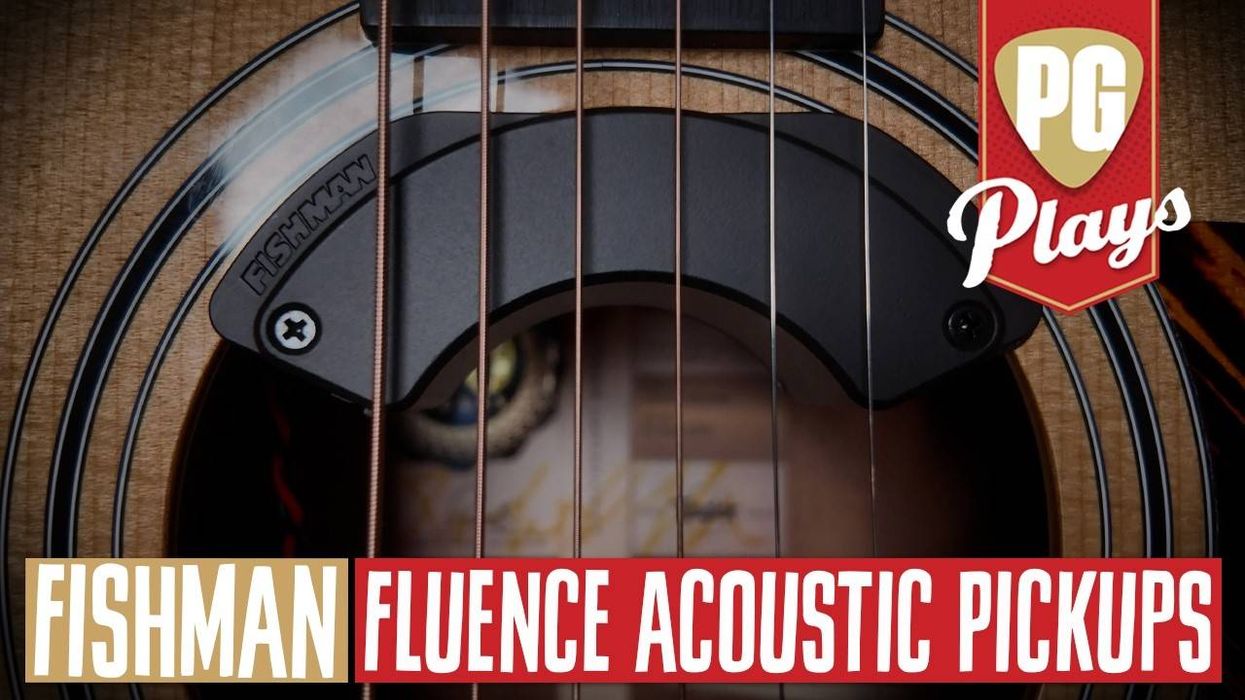
![Rig Rundown: Russian Circles’ Mike Sullivan [2025]](https://www.premierguitar.com/media-library/youtube.jpg?id=62303631&width=1245&height=700&quality=70&coordinates=0%2C0%2C0%2C0)
